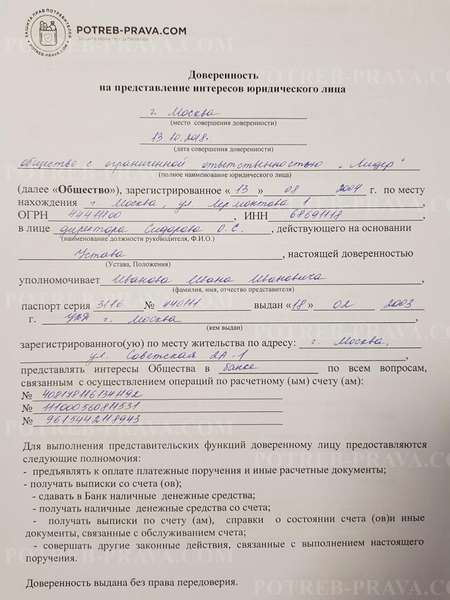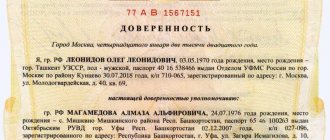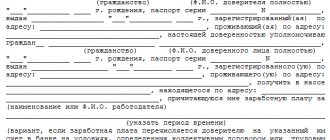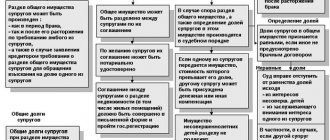Power of attorney to conduct business in an arbitration court: what does it provide and how to draw it up correctly? Let's figure it out together. The Civil Code of the Russian Federation establishes the possibility of granting a power of attorney in the case of conducting legal cases in an arbitration court. Our arbitration professional lawyer will help both with the preparation and advise you on the correctness of the already drawn up power of attorney.
Execution of a power of attorney for representation in an arbitration court
As a general rule, to represent interests in an arbitration court, a citizen must have a power of attorney certified by a notary. The exceptions are those specified in paragraph 2 of Art. 185.1 of the Civil Code of the Russian Federation cases (powers of attorney for military personnel, etc.). At the same time, organizations can issue powers of attorney in simple written form. An individual entrepreneur can sign a power of attorney and affix it with a seal, but if there is none, then he will also have to formalize the power of attorney notarized.
Samples of powers of attorney for representation of interests in court from a legal entity
ATTENTION! Look at the completed sample power of attorney to represent the interests of a legal entity in court:

You can DOWNLOAD samples of powers of attorney to represent interests in court from a legal entity using the links below:
- Power of attorney to represent interests in court from a legal entity
- General power of attorney for representation of interests in court from a legal entity
Contents of the power of attorney
Usually, when drawing up a document, a certain structure is followed. First, they indicate who is authorizing whom. In other words, they write the last name, first name, patronymic and passport details or name, INN, OGRN and the basis of authority of the signatory (for a legal entity) of the principal and representative. Then they write specific powers (types of actions) that the representative can implement.
As a general rule, a representative has the right to perform all procedural actions on behalf of the person he represents. The exception is powers, which must be specifically specified. Without this, the representative will not automatically be authorized to perform such actions. Thus, the right of the representative to:
- receipt of money or property awarded as a result of the case;
- signing a claim, response, application for securing a claim, appealing a judicial act;
- application for review of judicial acts based on new circumstances;
- waiver of claims and recognition of the claim, full or partial;
- transfer of representative powers to other persons;
- concluding a settlement agreement with opponents;
- making changes to the subject and grounds of the claim;
- transfer of the case to arbitration.
It is worth recalling that the deed of trust is always drawn up in notarial form.
The block of powers for participation in bankruptcy cases deserves special attention. It must be included in the power of attorney if you plan to participate in relevant cases. Even minimal participation requires a separate indication in the documents: in a separate dispute, at a meeting of creditors, etc.
Firstly, there needs to be an indication that the representative has the right to be a representative in the bankruptcy case. Secondly, it is necessary to stipulate that the representative can exercise all the powers of a participant in bankruptcy proceedings in all competent authorities on the entire range of issues.
A sample text in this case will look like this: “Represent the interests of the Company as a creditor of organizations and citizens in the process of their insolvency (bankruptcy) or liquidation, in government and administrative bodies, in arbitration courts, in self-regulatory organizations of arbitration managers, in all organizations and institutions , before the debtor, as well as at meetings of creditors and in the committee of creditors with all the rights granted to the creditor by the Civil Code of the Russian Federation, the Federal Law “On Insolvency (Bankruptcy)”, including the rights:
- presentation of the creditor's claims to the debtor;
- obtaining documents and all necessary information on issues included in the agenda of the meeting of creditors and the creditors’ committee;
- putting forward proposals on the procedure for holding a meeting of creditors and meetings of the creditors’ committee, as well as on the voting procedure at the meeting of creditors and at meetings of the creditors’ committee;
- participation in the discussion of all issues included in the agenda of the meeting of creditors and the meeting of creditors;
- nominating candidates for administrative, temporary and bankruptcy trustees, members of the creditors' committee, and the chairman of the creditors' committee;
- voting on all issues referred by law to the competence of the meeting of creditors and the creditors’ committee, as well as on other issues that may arise during the meeting of creditors and the meeting of the creditors’ committee;
- appeals against actions (inactions) of participants in the bankruptcy process, the arbitration manager and third parties involved by him, objections to issues considered by the arbitration manager within his competence, as well as the arbitration court.”
In the conclusion, the possibility of reassignment and the validity period of the power of attorney are indicated.
Features of a power of attorney
The main difference between a power of attorney to represent the interests of a legal entity is that the power of attorney is issued by an organization, and not by a specific representative of the company. In case of legal claims against a legal entity, the head of the company is the responsible person, but does not act as a principal.
However, the role of the principal and the decision to appoint an attorney is performed by the head of the organization.
The legal differences of this type of power of attorney are as follows:
- features of document text composition,
- differences in the data recorded in the document,
- options for delegation of powers,
- options for giving legal force to a document.
A power of attorney is required to be issued even if its in-house lawyer is acting in the interests of the organization.
Watch the video. New rules for issuing powers of attorney to the court and government bodies:
Principal and representative
The person who grants another person the authority to protect the interests of the organization in legal proceedings is the principal. The other party is a representative, or in other words, an attorney.
A representative is a person who is given the right to participate in legal proceedings from an organization.
The representative may be:
- a person who is officially employed by this organization. Basically, to protect the interests of a legal entity in court, an employee of the legal department or accounting department is appointed as a representative,
- a person not related to the organization. Thus, an experienced lawyer from a law firm can be appointed as a representative.
- hired employee.
The law does not establish restrictions on the number of attorneys. The principal has the right to transfer rights to several persons at once, for example, he can appoint 2 lawyers at once (from his company and from a law office).
After an authorized person of the organization issues a power of attorney, his participation in court will not be required. An attorney will represent the interests of the organization.
Sample power of attorney to represent the interests of a legal entity in court.
How to issue a power of attorney
The header of the power of attorney form must contain your personal data indicating your last name, first name, patronymic, date of birth and place of your permanent residence.
It is necessary to indicate the passport details: its series and number, who issued it and the time of receipt. If your passport needs to be replaced due to its expiration date, it will be better if you issue a new general civil document; cases in court can last a long time, and a passport with an expired validity period will be declared invalid and may be refused to consider the case with your representative.

Then in the power of attorney you should indicate the passport details of the citizen for whom you are drawing up the power of attorney, and indicate a list of powers that you grant to your representative in court, for example:
- To file and withdraw a statement of claim;
- Writing a response to a statement of claim;
- To file petitions for the court to request additional evidence of your case;
- To write a cassation appeal and representation in a cassation court;
- Other powers you intend to grant to your trustee.
Any power of attorney is issued for a certain period, and since court hearings can take place not only in the court of first instance, but also in higher courts, it is better to vest the representative with these powers for a longer period. Moreover, this right will apply only to your case and it is impossible to represent the interests of other citizens in it.
You can write a power of attorney by hand and submit it for certification by a notary, but you can also use a special form, where the notary will indicate all your preferences for establishing powers for your legal representative; it is certified with a signature and seal; without these attributes it has no legal force. A copy of the power of attorney is made, the original and a copy are provided to the court, it will be in the case materials.
Validity
The main validity period of the trust document must be stated in the text.
However, there are circumstances for early termination of a power of attorney:
- if the representative no longer works for the organization,
- in case of change of position of the representative,
- if the head of the organization personally revoked the representative’s power of attorney.
Compiled special and one-time powers of attorney lose legal force at the moment of completion of the process for which they were created. In case of legal proceedings after receiving an extract from a court decision.
If the power of attorney does not indicate a validity period, it will automatically be equal to 1 year.
When to apply
When considering a controversial situation in an arbitration court, the head of a legal entity may issue a power of attorney.
Basically, a power of attorney is issued when:
- the director of the company does not have the opportunity to take part in the consideration of the dispute in court,
- To resolve a controversial situation, the assistance of a professional in such matters (lawyer, attorney) is required.
Remember! The head of an organization can issue a one-time power of attorney, for example, for a person to participate in the preparation of a case or to participate in a specific dispute, etc. If the director of the company wishes to personally participate in the process, a special document giving this right is not required.

Power of attorney for registration of ownership of land
How to issue a notarized power of attorney to represent interests, read here.
How to issue a power of attorney to represent interests in an insurance company, read the link: https://novocom.org/dokumenty/doverennosti/doverennost-na-predstavlenie-interesov-v-straxovoj-kompanii.html
Powers by proxy
The list of powers that can be transferred by proxy is quite large.
If a power of attorney is issued to protect the interests of an organization in court, the attorney is granted the following rights:
- prepare and send statements, petitions and lawsuits. In this case, the representative has the right to sign all papers himself,
- increase and decrease the amount of claims,
- change the subject of the claim and the basis,
- refuse demands
- return the statement of claim,
- enter into agreements with the other party,
- appeal court decisions,
- refer the case to arbitration,
- receive court orders,
- delegate powers to a third party, etc.
Attention! Our qualified lawyers will assist you free of charge and around the clock on any issues. Find out more here.
What documents will be required

In order to draw up a document granting a representative the right to participate in the Arbitration Court, the following papers will be required:
- charter of a legal entity,
- IIN and OGRN,
- passports of authorized persons: manager, director and chief accountant,
- form of document used in an organization.
Watch the video. Representation and power of attorney:








